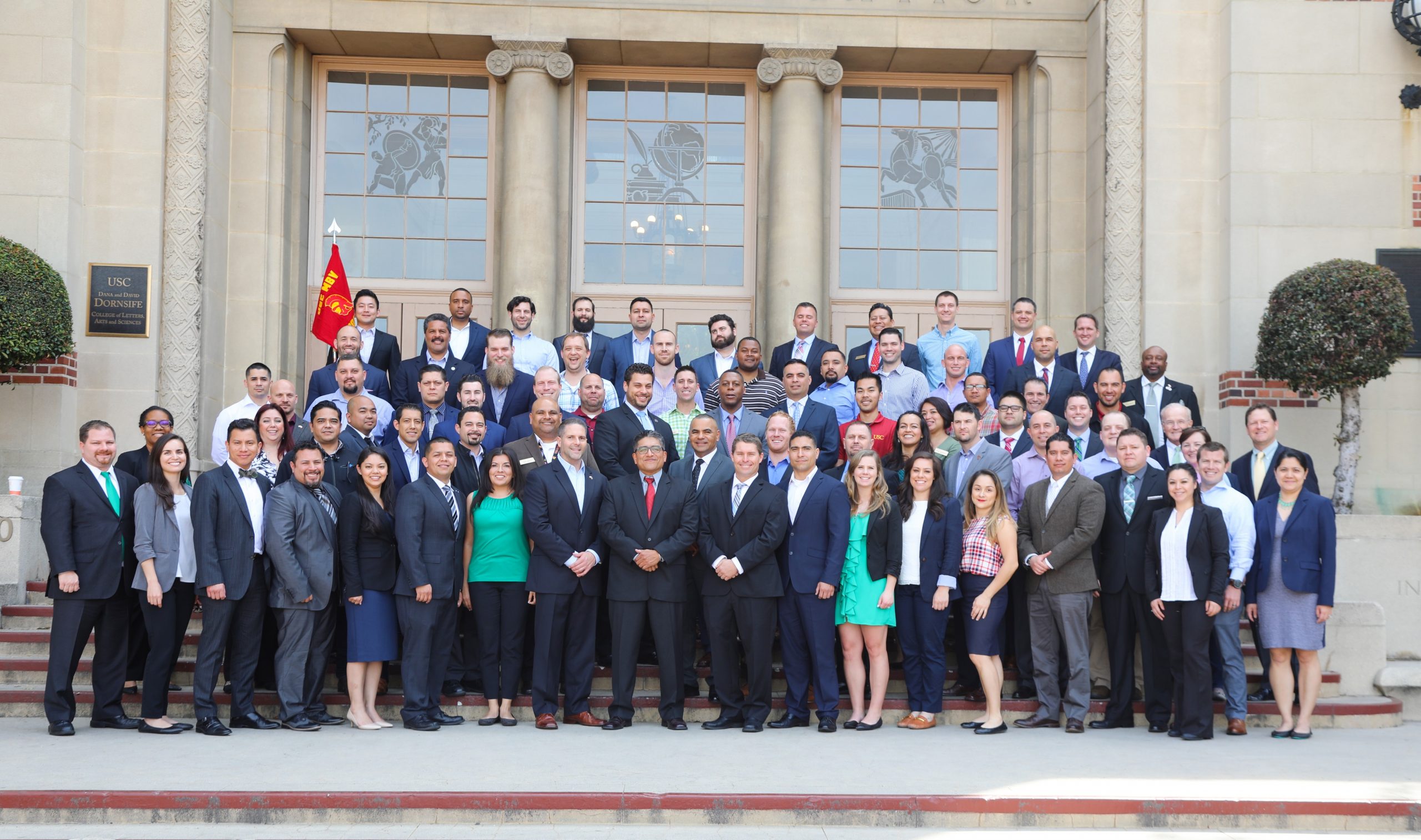This year is perhaps the year of volatility, so much so that no one seems to agree on whether we should be worried. In May, one markets reporter noted that there seemed to be little impact on stocks, despite a highly chaotic social and political climate. Two days later, another noted that we should still be concerned about volatility in 2018. It appears that we’ve reached a point of being uncertain about uncertainty.
And, as the adage goes, markets hate uncertainty. We spoke with USC Professor and economist Kevin Murphy about some of the complex issues that lead to this kind of volatility, and some of the things he’s learned through his research. His research during the Great Recession provided some unique insight into the intersection of politics, social influencers and business decision-making. In addition, Murphy highlighted what implications these kinds of issues have for business education programs.

Kevin Murphy is an internationally recognized business scholar, and one of the first economists to focus on issues surrounding executive compensation. In addition to teaching for USC’s Online MBA, he has held faculty positions at the Harvard Business School and University of Rochester. Professor Murphy is not only widely published in academic journals and news, but he brings an abundance of insight from his work in consulting with some of the world’s largest firms as well as the U.S. Treasury Department and more.
The Great Recession, Compensation and Business
While The Great Recession officially ended in the U.S. in 2009, the repercussions continue to manifest in the ways organizations operate as well as in their relationships with shareholders, tax payers and customers. The movements that followed, such as Occupy Wall Street, placed a cultural hyper focus on compensation and pay structures in business.
Although there were no doubt flaws in both the way companies paid their leaders as well as in the regulation that followed the recession, the relationship between compensation, regulation and the economy can’t be boiled down to a handful of issues. When we spoke to Professor Murphy, he cautioned against the oversimplification of issues as complex as these; the danger being that ineffective legislation is counterproductive both for government and for the businesses that must respond to changes in law.
“[Compensation regulations,] often passed to curb perceived excesses in executive compensation, have largely backfired and produced unproductive unintended consequences. I expect more attempts, especially if there are (widely anticipated) changes in the composition of Congress.”
One example of this phenomenon in action is with the regulations that followed The Great Recession. Although the stated intent behind acts like Dodd-Frank was to mitigate risk taking, the outcome of the law was to curb high compensation in the financial services industry, especially for organizations that received government aid. As Murphy illustrated in Pay, Politics and the Financial Crisis, this logic was flawed for several reasons:
- Pay levels and overall compensation were not equal, even when considering their percentage to the overall equity of their companies, across banks and broker-dealer firms.
- For most executives, compensation was linked to the equity of their companies, which actively mitigated risk-taking behavior.
- Performance measurement in firms like Washington Mutual played a huge role in the crisis, because agents were reviewed on quantity rather than quality of loan.

Looking toward the future, it’s likely that businesses will face a new wave of complex issues, like the ones that led to The Great Recession. As we look toward an environment charged with political uncertainty in the U.S. and internationally, business leaders will be challenged to respond to these issues in a way that is both ethical and that creates value for their organizations.
“Like most economists, I believe that the changes to the corporate tax rates, and the move away from regulations, both improve the business environment. Similarly, like most economists, I believe that the move to tariffs and trade wars will be bad for business.”
The complexity of these challenges has created demand for well-rounded business leaders with a comprehensive skillset. This is perhaps part of the reason that business education programs around the world are experiencing high growth, with the majority reporting an increase in volume in 2017.
Yet, many leadership-building programs will inevitably fail. Why?
In looking at the failure of many leadership training programs, McKinsey & Company highlighted an important key to success: Context. In its article, the company was referring to context in the sense that a strong leader in one scenario is not necessarily the best leader in another. However, understanding context has far broader implications. The best leaders also understand it from a market perspective. They are aware of external forces that may influence their organizations and they have a sense of the pulse of their companies.
The focus on context, not just a list of skills, is what separates a modern, forward-looking business education from MBAs relying on outdated pedagogy.
The Role of Business Education in Managing Chaos
The overarching challenge that the recession’s long-lasting impact on businesses illustrates is the need for dealing with the chaotic intersection of cultural pressure, politics, law, markets and business leadership.
This creates an interesting challenge for MBA and business Ph.D. programs—how can they effectively teach intangible skills like managing and responding to chaos?
It is important that even the core fundamental business courses teach students how to think rather than what to think. Achieving this comes from group projects that actively encourage collaboration, classes that adopt a global perspective, and, for MBA programs, enabling students to develop authentic professional relationships with each other and faculty.
While MBA programs must teach practical business skills, the issues that modern global businesses face are complex in that they represent an intersection of politics, ethics, economics and countless other issues. As a result, the best online MBA programs will be those that also provide students with frameworks for thinking and problem solving both in and outside of work.
The benefits of this approach are that graduates are not only equipped with the ability to stay ahead of disruptions, but with the capacity to articulate their own values throughout the work they do.
“Although the course I teach is more introductory, we’ve made a geographically dispersed class feel more like a smaller residential program. We prepare students for business through rigorous group projects, cases, and group discussions about current business issues. Ultimately, I hope that exposure to economics will affect not only how they think about business decisions, but decisions in all walks of life.”
About the USC Marshall School of Business

USC Marshall is one of the premier business schools in the U.S. and internationally recognized as a home for path-breaking research that emphasizes entrepreneurship, innovation, leadership and social responsibility.
The USC Online MBA from the Marshall School of Business is built to help students succeed in the digitally driven business landscape, providing a curriculum focused on the practical skills expected of today’s global leaders. Located in the heart of Los Angeles, Marshall brings undergraduate and graduate students a unique perspective on the world, including global opportunities for experiential learning. The vibrant and active Trojan alumni community includes more than 89,000 people in 92 countries.






